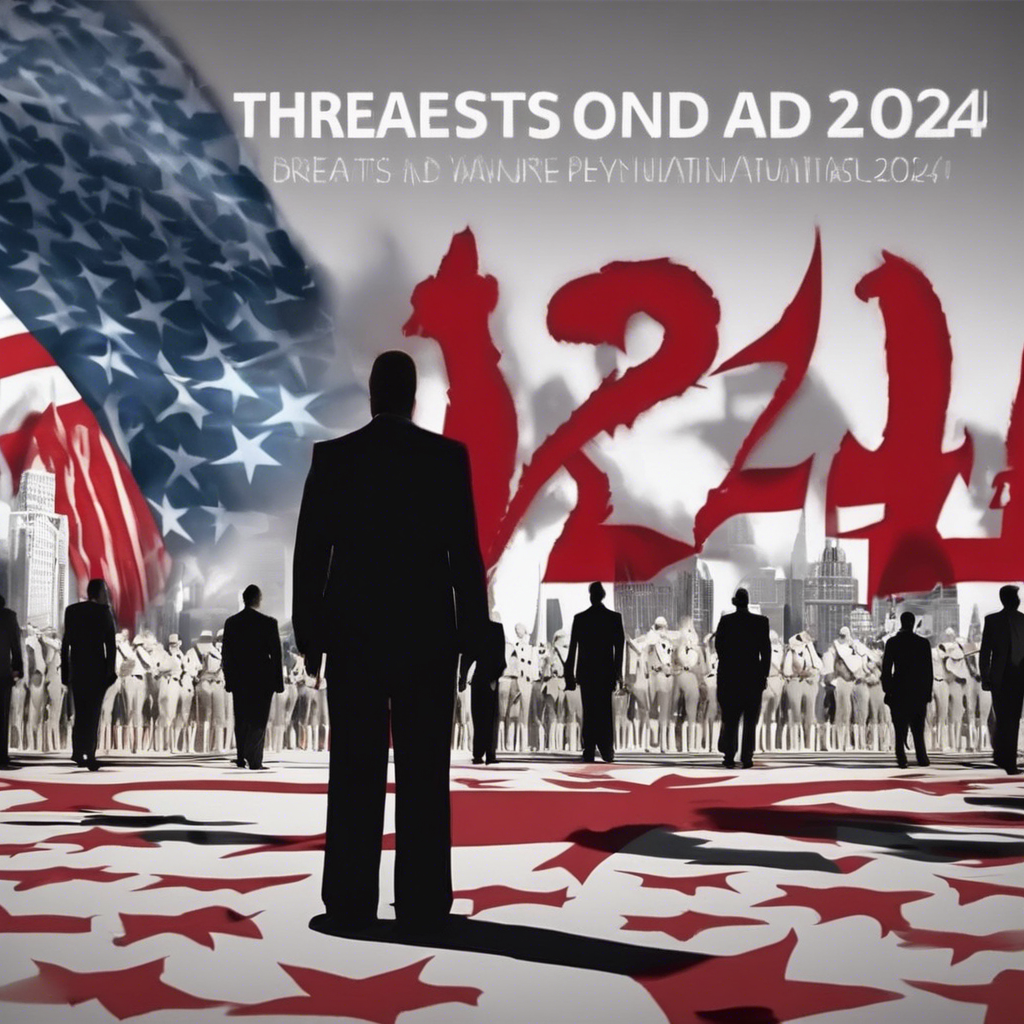Threats and Intimidation Cast Shadow over 2024 Campaign

Violent threats and acts of intimidation against government officials are on the rise, creating a climate of fear and uncertainty as the 2024 campaign season begins.
In recent years, threats and acts of violence against government officials have become alarmingly common, with the situation intensifying since the 2020 presidential election. From members of Congress to state officials and judges, individuals across the political spectrum have been targeted, with the intensity of these threats escalating in recent weeks. As Americans prepare to vote in the 2024 primary season, the fear of violence and intimidation looms large, casting a shadow over the democratic process.
A Disturbing Trend
Bomb threats and incidents of swatting, where prank calls are made to emergency services to elicit a law enforcement response, have become increasingly prevalent. Last week, state capitol buildings across the country were evacuated due to bomb threats, while federal authorities arrested a man for threatening to kill a congressman and his children. The Maine secretary of state and the Colorado Supreme Court, both of which ruled against Donald Trump’s eligibility to run for the presidency, received a surge of threats after being criticized by Trump himself.
The Impact on Public Servants
The wave of threats and acts of violence against government workers and public servants is deeply disturbing, according to Attorney General Merrick Garland. While physical violence remains relatively rare, the fear of harm is already undermining the health of U.S. democracy. Officials who have been targeted express genuine concern that threats could escalate into physical violence at any moment. The Wisconsin Supreme Court, for example, received a wave of threats following a ruling upholding Joe Biden’s victory over Trump, leading to fears among judges that their decisions may be influenced by intimidation.
The Role of Political Incentives
Acts of violence and threats of violence have the potential to change political incentives and decision-making. Politicians have admitted to changing their votes out of fear for their families’ safety, while the threats themselves make the political system less democratic. While threats come from activists across the political spectrum, the majority of violent threats are from the far right. Crucially, these threats are often not discouraged by representatives in government, and at times, are even encouraged or condoned by figures like Donald Trump.
The Long-Term Consequences
The long-term consequences of threats and violence against officials are significant. Research has shown that women and people of color, who are more likely to be violently threatened, are also more likely to step away from their roles in politics and election work. This not only intimidates those currently in office but also changes the future makeup of political leadership. The impact is felt not only in the present but also in discouraging individuals from running for office or engaging in election work.
The Importance of Speaking Out
While law enforcement officials often advise targets of threats not to discuss their experiences publicly, it is essential for the public to know when officials are being threatened for doing their jobs. Threats and acts of violence are an attack on democracy itself, and officials must stand up against intimidation. By shedding light on the challenges they face, officials hope to raise awareness and protect the democratic process.
Conclusion:
As the 2024 campaign season begins, threats and acts of intimidation against government officials have become increasingly prevalent. The fear of violence and intimidation looms large, casting a shadow over the democratic process. While physical violence remains relatively rare, the impact of threats on decision-making and political incentives is already undermining the health of U.S. democracy. It is crucial for officials to speak out against these threats and for the public to be aware of the challenges faced by those working to uphold the democratic system. Only by addressing these issues can the democratic process be protected and strengthened.

